A LITTLE OF MY STORY
Failure isn’t the end; it’s a doorway to understanding and necessitates reflection! Through my actions, I have always tried my best to inspire someone, somewhere. But this journey has taught me that mere encouragement often falls short. True empowerment comes from something deeper, something that helps uncover the dreams within oneself. Recently, what seemed like a promising success story, quickly turned into a disappointment. The initial taste of victory vanished before I could fully celebrate it. I was disheartened, but in the quiet moments after, I began to reflect on what had gone wrong, and what I might have missed along the way. It is important to document the lessons learned. 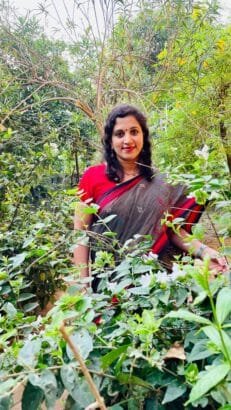
Two years ago, I joined a small team of like-minded individuals running projects under the name South Asian Study Initiatives (SASI), a nonprofit organization that aims to promote and uplift indigenous artisans and their families. That is how I was introduced to a small weaver cluster village, Nuapatna, in Odisha. SASI’s goal in this case was to provide necessary support for the weavers’ children, encouraging them to pursue education and explore various profit-generating trades. Through SASI, we had sponsored teachers for tailoring beautician training, computer training, educating for sanitary education and even equipped a few of them with sewing machines.
 On my first visit to Nuapatna I was filled with hope. There was a small computer center run by a young teacher named Sunil and a tailoring class taught by Gayatri. What moved me most was seeing young girls ride their bicycles from miles away to attend the training sessions. Their eyes sparkled with untapped potential—an inner flame that could illuminate their futures and uplift their entire community. Watching them, I felt a surge of hope. These girls were on the brink of something remarkable.
On my first visit to Nuapatna I was filled with hope. There was a small computer center run by a young teacher named Sunil and a tailoring class taught by Gayatri. What moved me most was seeing young girls ride their bicycles from miles away to attend the training sessions. Their eyes sparkled with untapped potential—an inner flame that could illuminate their futures and uplift their entire community. Watching them, I felt a surge of hope. These girls were on the brink of something remarkable.
I noticed most of the attendees were girls, not boys. I assumed the boys were likely involved in farming and weaving or had been allowed to go out of town for studies while the girls remained tied to societal boundaries. However, seeing them ride their bicycles gave me hope that they too harbored dreams that had yet to be expressed.
Through my growing interest in promoting handlooms, I developed connections with friends involved in this field. Once I was invited to be the showstopper by a fashion designer friend Satya Moharana, who is a faculty member at ITI. Through him, I became aware of the government-run ITI institute in Bhubaneswar offering a free one-year “Dress Making” course for girls. The students also participate in designing garments for models for the ramp walk. It felt like an “aha” moment—a chance to inspire these girls to seize this opportunity. I arranged a Zoom call to encourage them to apply, and SASI covered their travel expenses for a campus visit to nudge them out of their comfort zones. Out of the 20+ girls we spoke to, about eight convinced their parents to let them apply. Of those, two were accepted by merit, and four others from the waitlist with my involvement. The girls were excited, though saddened for those who didn’t make it.
However, reality hit hard the day they left for the hostel. One girl, who was married, had to drop out when her daughter couldn’t be consoled. Her dreams were shattered before she even had a chance to break free. The remaining five girls made it to the hostel, but financial challenges persisted, because even though boarding was free they still had to cover food costs. Given their poor financial backgrounds, I assured them of bridging the financial gap for the year. This provided some assurance, but there was another challenge: the hostel had strict rules regarding cell phone usage. They were only allowed limited access to their phones, which made them feel disconnected from their families.
 Soon, two of the girls fell ill—likely due to anxiety. To make matters worse, they experienced hazing, which added to their stress. Being from simple, homely backgrounds, they struggled with the hostel environment. The girls also found themselves unprepared for public speaking demands, such as being asked to read aloud from English newspapers or give speeches in Hindi or English after prayer at the beginning of the day. This only intensified their fear.
Soon, two of the girls fell ill—likely due to anxiety. To make matters worse, they experienced hazing, which added to their stress. Being from simple, homely backgrounds, they struggled with the hostel environment. The girls also found themselves unprepared for public speaking demands, such as being asked to read aloud from English newspapers or give speeches in Hindi or English after prayer at the beginning of the day. This only intensified their fear.
The following weekend, they requested permission to go home but were told they could only leave if they quit the program. Sadly, the girls made the hasty decision to sign the forms and pack their bags.
Sunil, upon my request, had worked hard to keep their spirits high during the admission process and was equally disheartened. We arranged a Zoom call to understand what led to this abrupt decision. I even tried bringing a former student for the call to assure them after a few days they would fly with colors. But things didn’t turn out the way I expected. I also got a chance to hear from the department head regarding this matter to know their side of the story. Here are my reflections:
Observations about ITI College:
- Though the admission process tried to prepare incoming students it was not sufficient. Setting prior expectations about hostel living conditions, rules, financial responsibilities, and cell phone policies could have eased the transition.
- Pairing new students with seniors who had graduated from the program might have mentally prepared them for what was expected.
- These girls were not accustomed to the fast-paced, often harsh, city life and expecting them to adapt overnight was unrealistic. Public speaking is a challenge for many, even in cities, and pushing it too soon was counterproductive.
- More teacher supervision during the initial weeks could have provided the mental support needed for a smoother adjustment.
- Their reliance on cell phones for business and staying connected with family left them feeling handicapped without access. A simple solution could have been to have little flexible phone usage during the first few days till one mentally gets accustomed. Those need to assist parents for earning maybe a little extra time after class hours would have helped them figure out alternatives. But I understand bending the rules for a few is not easy from the institution’s point of view.
Observations about the Students:
- The girls, raised in a bubble, were unprepared for adversity and showed signs of phone addiction beyond business usage. Any new routine takes time to adjust to, and they needed more support to overcome their initial discomfort.
- They lacked vision and resilience, which made it difficult for them to handle the new environment. They could have voiced their concerns to teachers or to me, as I was planning to speak with the department head anyway.
- The urge to achieve and dream big must come from within. They needed to have their own dreams; others could only help in achieving those dreams. In this case, they were simply following my advice but they may not have truly wanted this career. From an outsider’s perspective, their financial condition may appear poor, but they may be content with minor improvements within their village setup. However, I genuinely believed that one year of study and practical training would have empowered them with confidence and exposed them to more opportunities that they couldn’t visualize at the time.
NGOs should not provide free services or products just to look good on social media. Truly understanding the community’s needs is crucial, otherwise these generous efforts may not be valued or appreciated.
Important Lessons Learnt:
- True. empowerment comes not from imposing a dream but from helping others discover their own.
- Lasting change requires more than opportunity—it requires the drive from within to seize it.
- An additional concern is the growing addiction to cell phones and social media, which young minds struggle to grasp. It’s worth noting that not only teens but also much younger children are being exposed to platforms like Instagram reels by their parents. For example, platforms like Instagram provide instant gratification through likes and shares. Studies indicate that excessive use of social media can overstimulate the brain’s reward centers, leading to addictive behavior patterns, which detract from deeper cognitive engagement and creativity. As a result, these young minds are becoming more and more passive consumers rather than active creators.
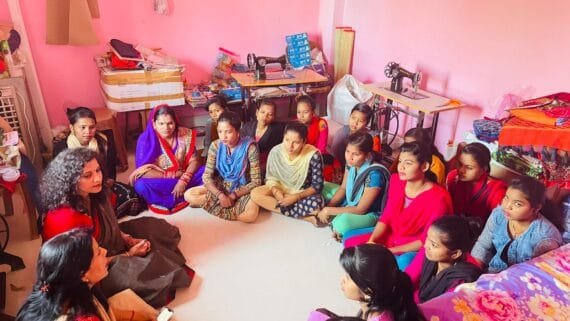 Although the journey didn’t unfold as I had hoped, I’m proud of the courage these young women showed in daring to dream beyond their circumstances. I genuinely believed they were on the verge of a breakthrough, and it feels like I’ve lost alongside them, knowing how close we came. Each step they took, no matter how small, planted seeds of change in their hearts and in the community. Challenges are a natural part of growth, and setbacks can often become stepping stones to future success. Despite this outcome, I still hold hope that what they learned will stay with them and someday ignite the courage to try again. I wish them well and trust that their resilience, even in disappointment, will ultimately lead them to paths they never imagined.
Although the journey didn’t unfold as I had hoped, I’m proud of the courage these young women showed in daring to dream beyond their circumstances. I genuinely believed they were on the verge of a breakthrough, and it feels like I’ve lost alongside them, knowing how close we came. Each step they took, no matter how small, planted seeds of change in their hearts and in the community. Challenges are a natural part of growth, and setbacks can often become stepping stones to future success. Despite this outcome, I still hold hope that what they learned will stay with them and someday ignite the courage to try again. I wish them well and trust that their resilience, even in disappointment, will ultimately lead them to paths they never imagined.


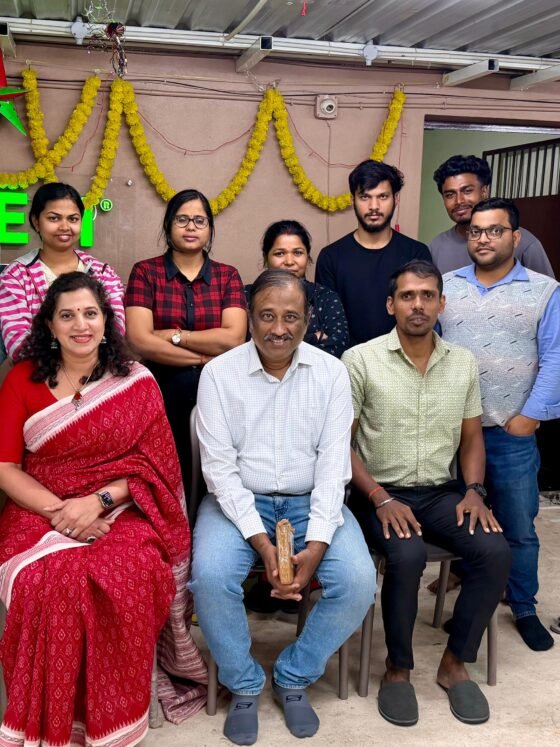
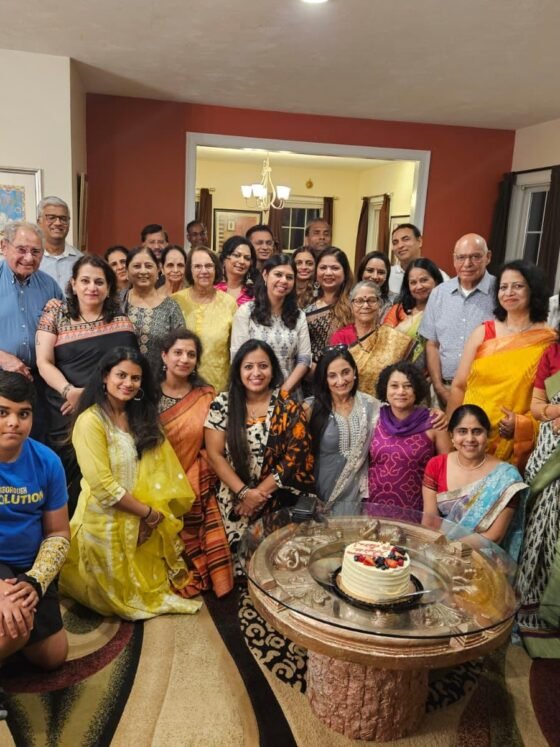
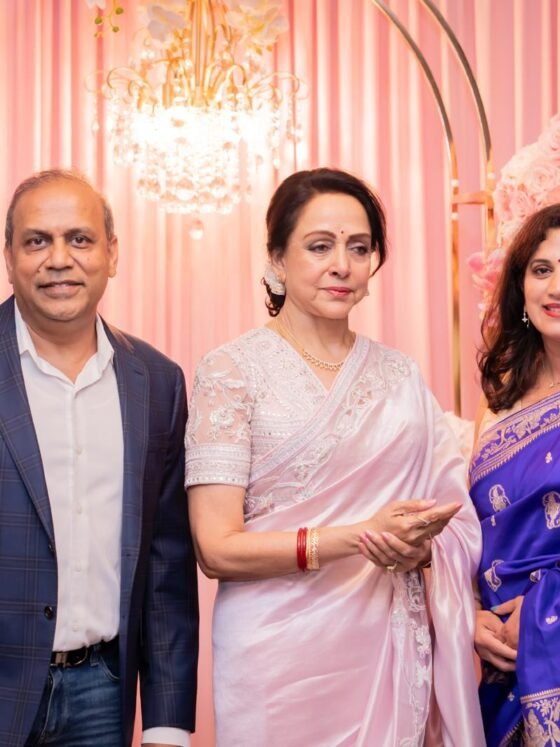
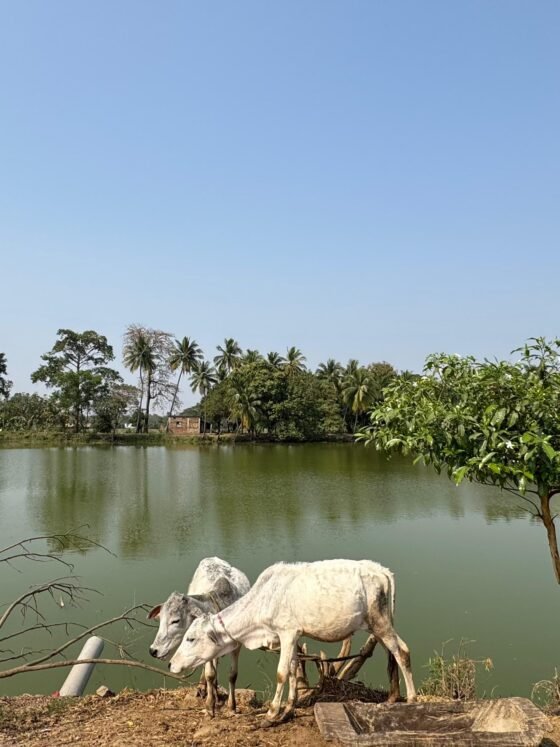




Subasini Barik
11/05/2024Really you are doing a wonderful job. Encouraging girls at such remote area is like a blessing in disguise. Such girls are struggling hard for their existence and facing innumerable existential issues. But yes. Such an initiative must provide a glimpse of hope against all odds. Many such initiatives should be encouraged.
Mohan Nannapaneni
11/05/2024Your reflection on the journey from encouragement to true empowerment is powerful. Your story highlights the importance of combining practical support with emotional and mental resilience, especially for young women facing societal barriers. It’s inspiring to see the dedication in helping them overcome challenges, even when setbacks happen. Thank you for sharing such an honest and insightful perspective on empowerment.
Manorama Choudhury
11/07/2024Thank you for your kind feedback. The knowledge gained from hands on experience is always worth reflecting upon. In this case apart from many lessons one stood out for me that I must not forget to think from other’s perspective. Thanks again. Feel free to explore many other reflections in the website. 🙏
Manorama Choudhury
11/06/2024Thank you. I realize there are multi layer issues to address. Understanding from other’s prospective is not always easy as we are not in their shoe. I tried my best and they were interested too. But in this case cell phone addiction stood out little more prominent. If they were mentally prepared beforehand outcome would have been totally different.
Subrat Mohanty
11/06/2024Manu, your dedication to social work is truly commendable—hats off to you! The narration is powerful and inspiring, and you are Magnet Manorama- that makes the beauty of nature shine even brighter.
Manorama Choudhury
11/07/2024Much appreciated for your kind words. 🙏